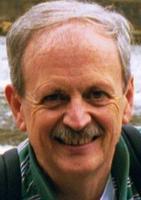Date:
Location:
Fostering Deep Intentions in Learning
 Ken Bain, PhD
Ken Bain, PhD
President of The Best Teachers Institute
Author - What the Best College Teachers Do (Harvard University Press)
Overview:
A large and growing body of research and theoretical literature suggests that not all students intend to learn deeply. Surface learners want to survive, to pass the course, and often try only to memorize enough to do so. Strategic learners predominately seek to make the highest marks. But neither of those two groups are always trying to learn deeply. Only the deep learners will focus on understanding ideas and concepts, on applications and implications, on making connections and developing new theories. Only the deep learners are likely to become adaptive and inventive experts, willing and able to tackle and solve novel problems and transfer across different situations. Many of the traditional practices in education seem to foster strategic learning at best, even among students of high natural intellectual ability. How do the best teachers create learning environments in which deep learning is most likely to emerge? In this interactive session, we'll explore some of the emerging approaches, fostering a rich conversation and exchange of ideas and bringing practices from other institutions into play.
Biography:
Ken Bain (Ph.D., History, University of Texas at Austin) is currently the president of the Best Teachers Institute, a research and educational organization focusing on higher education. He spent much of his academic career at Vanderbilt, Northwestern, and NYU, before becoming a provost and vice president for academic affairs, a post he left in July 2013. He was the founding director of four major teaching and learning centers: the Center for Teaching Excellence at New York University, the Searle Center for Teaching Excellence at Northwestern University, the Center for Teaching at Vanderbilt University, and the Research Academy for University Learning at Montclair University. He also served as a professor of history at each of those institutions.
In the late 1970's and early 80's, he was a professor of history at the University of Texas--Pan American, where he also served as director of that school's University Honors Program. He was founding director of the History Teaching Center, a pioneering program sponsored by the National Endowment for the Humanities to promote greater collaboration between history teachers on the secondary level and research historians. From 1984 to 1986, he served as director of the National History Teaching Center, which had a similar mission on the national level.
His historical scholarship centers on the history of U.S. foreign policy in the Middle East (principal works include The March to Zion: United States Policy and the Founding of Israel, 1980, 2000). He is currently finishing his third book on U.S. relations with the Middle East, The Last Journey Home; Franklin Roosevelt and the Palestine Question.
He has long taken an interest in teaching and learning issues and in recent years has contributed to the scholarship in that area. His learning research has concentrated on a wide range of issues, including deep and sustained learning and the creation of natural critical learning environments. His now classic book, What the Best College Teachers Do (Harvard University Press, 2004) won the 2004 Virginia and Warren Stone Prize for an outstanding book on education and society, and it has become one of the most widely read and discussed works on higher education. It has been translated into twelve languages and was the subject of an award-winning television documentary series in 2007. The sequel, What the Best College Students Do, also from Harvard University Press, won the Virginia and Warren Stone Prize in 2012 and has become an international best seller.
Bain has been invited in recent years to present workshops or lectures at nearly six hundred universities and events--in the United States, Canada, Mexico, South America, Europe, Asia, Africa, and Australia. He has been a frequent consultant to universities, national governments, and the European Union. For his lifetime contributions to both historical scholarship and educational research, he was recently awarded the Doctor “Honoris Causa” degree from the University of Valencia in Spain.
He has won four major teaching awards, including a teacher-of-the-year award, faculty nomination for the Minnie Piper Foundation Award for outstanding college teacher in Texas in 1980 and 1981, and Honors Professor of the Year Awards in 1985 and 1986.
He has received awards from the Harry S Truman Library, Lyndon Baines Johnson Library, the Ford Foundation, the National Endowment for the Humanities, and the International Studies Association, among others. He is currently completing a new book on teaching and learning, Super Courses (forthcoming from Princeton University Press), an examination of evidence-based learning environments.
